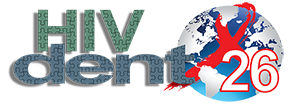|
This Sunday, August 18, 2019, marked the 29th anniversary of the Ryan White Comprehensive AIDS Resources Emergency (CARE) Act. First authorized in 1990, the Ryan White CARE Act is the legislation that created the Health Resources and Services Administration’s (HRSA) Ryan White HIV/AIDS Program. The program has been reauthorized four times: in 1996, 2000, 2006, and most recently in 2009. With each new authorization, the Ryan White CARE Act was amended to accommodate new and emerging needs of the cities, counties, states, and local community-based organizations that provide services to people with HIV where they are and based on their needs.
Today HRSA’s Ryan White HIV/AIDS Program provides a comprehensive system of HIV primary medical care, medications, and essential support services for low-income people with HIV who are uninsured and underserved. More than half of people with diagnosed HIV in the United States – more than 500,000 people – receive services through the Ryan White HIV/AIDS Program. In 2017, 85.9 percent of Ryan White HIV/AIDS Program clients receiving HIV medical care were virally suppressed, exceeding the national average of 59.8 percent.
It is an exciting time to be part of the Ryan White HIV/AIDS Program, especially with the program’s critical role in the “Ending the HIV Epidemic: A Plan for America” initiative. Earlier this week, HRSA released the FY 2020 HRSA 20-078 Ending the HIV Epidemic: A Plan for America — Ryan White HIV/AIDS Program Parts A and B NOFO as well as the FY 2020 HRSA 20-079 Ending the HIV Epidemic: A Plan for America –Technical Assistance Provider and the FY 2020 HRSA 20-089 Ending the HIV Epidemic: A Plan for America – Systems Coordination Provider NOFOs.
The purpose of HRSA 20-078 is to focus resources in 48 counties, Washington, D.C., San Juan, Puerto Rico (PR), and seven states to implement effective and innovative strategies, interventions, approaches, and services to reduce new HIV infections in the United States. The overarching goal for this initiative is to reduce new HIV infections in the United States to less than 3,000 per year by 2030.
The HRSA 20-079 Technical Assistance Provider is responsible for providing technical assistance to the recipients of HRSA-20-078 on implementation of work plan activities, innovative approaches, and interventions. The HRSA 20-089 Systems Coordination Provider is responsible for assisting HRSA-20-078 recipients in coordinating and integrating their initiative plans, funding sources, and programs with the existing HIV care delivery systems. In addition, the Systems Coordination Provider will assist in identifying existing and new stakeholders, as well as collate and disseminate best practices, innovative approaches, and interventions identified by the Technical Assistance Provider that will advance recipient’s progress in meeting the goals of the initiative.
The initiative is a very small investment compared to the totality of the Ryan White HIV/AIDS Program annual appropriation, and it is working together, with both our annual appropriation/ongoing program with this new investment, that we will successfully work to end the HIV epidemic in the U.S.
We look forward to working with you over the coming months and year as HRSA and the HIV/AIDS Bureau continues to define our leading role in helping diagnose, treat, prevent, and respond to end the HIV epidemic. As always, thank you for all the work you do and for your commitment to providing care and treatment to people with HIV across the nation.
Laura Cheever and Heather Hauck |



